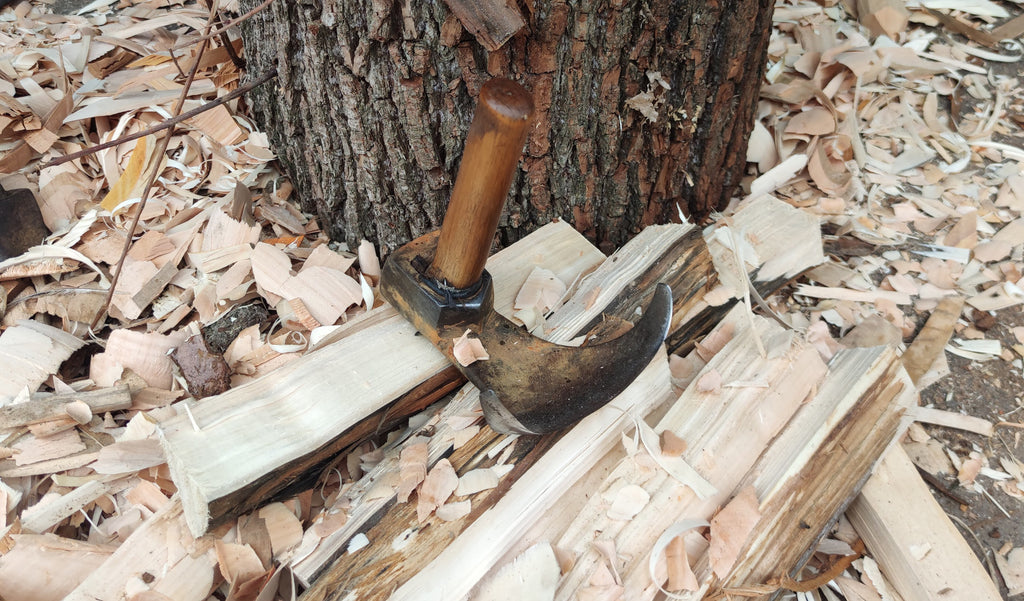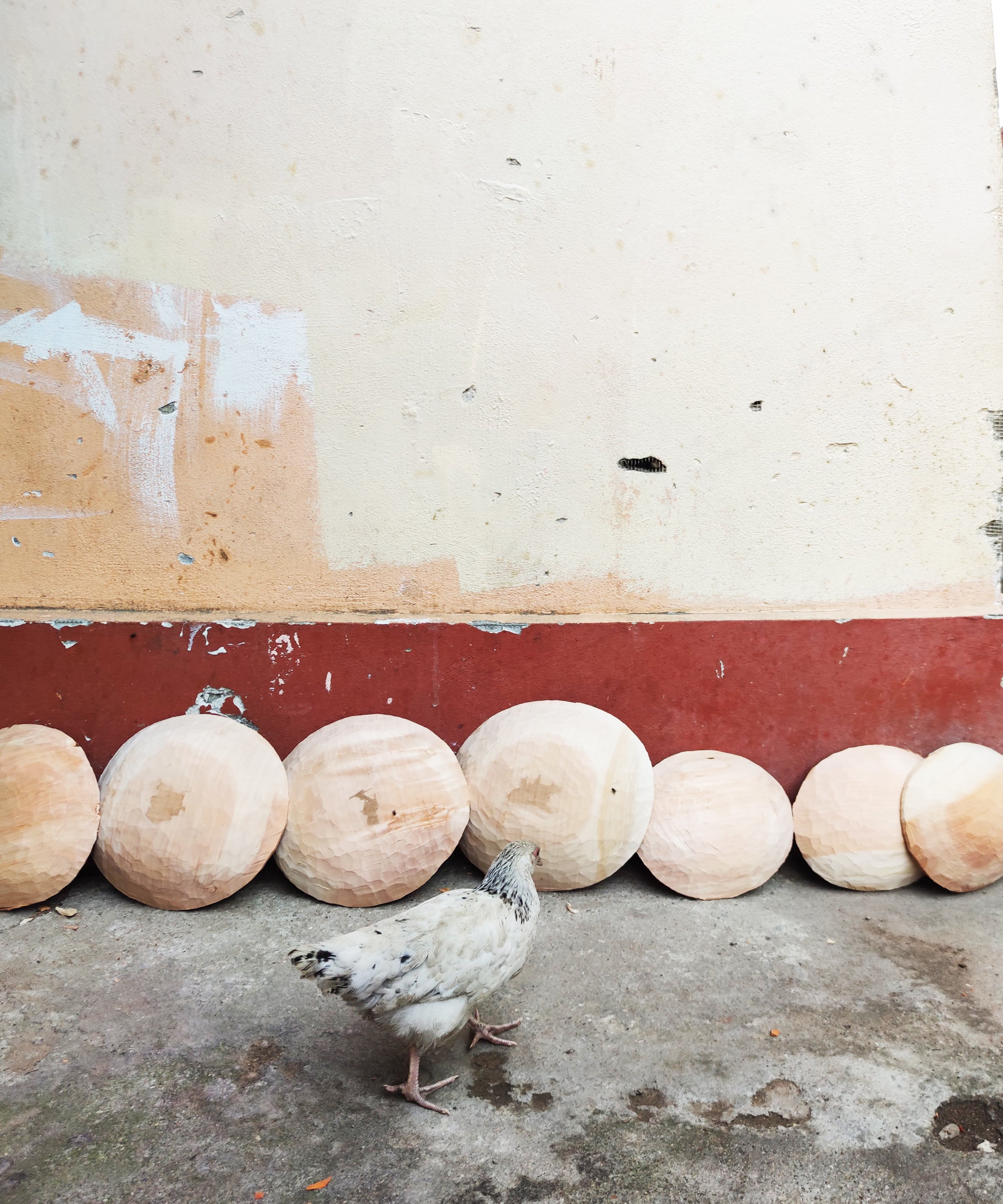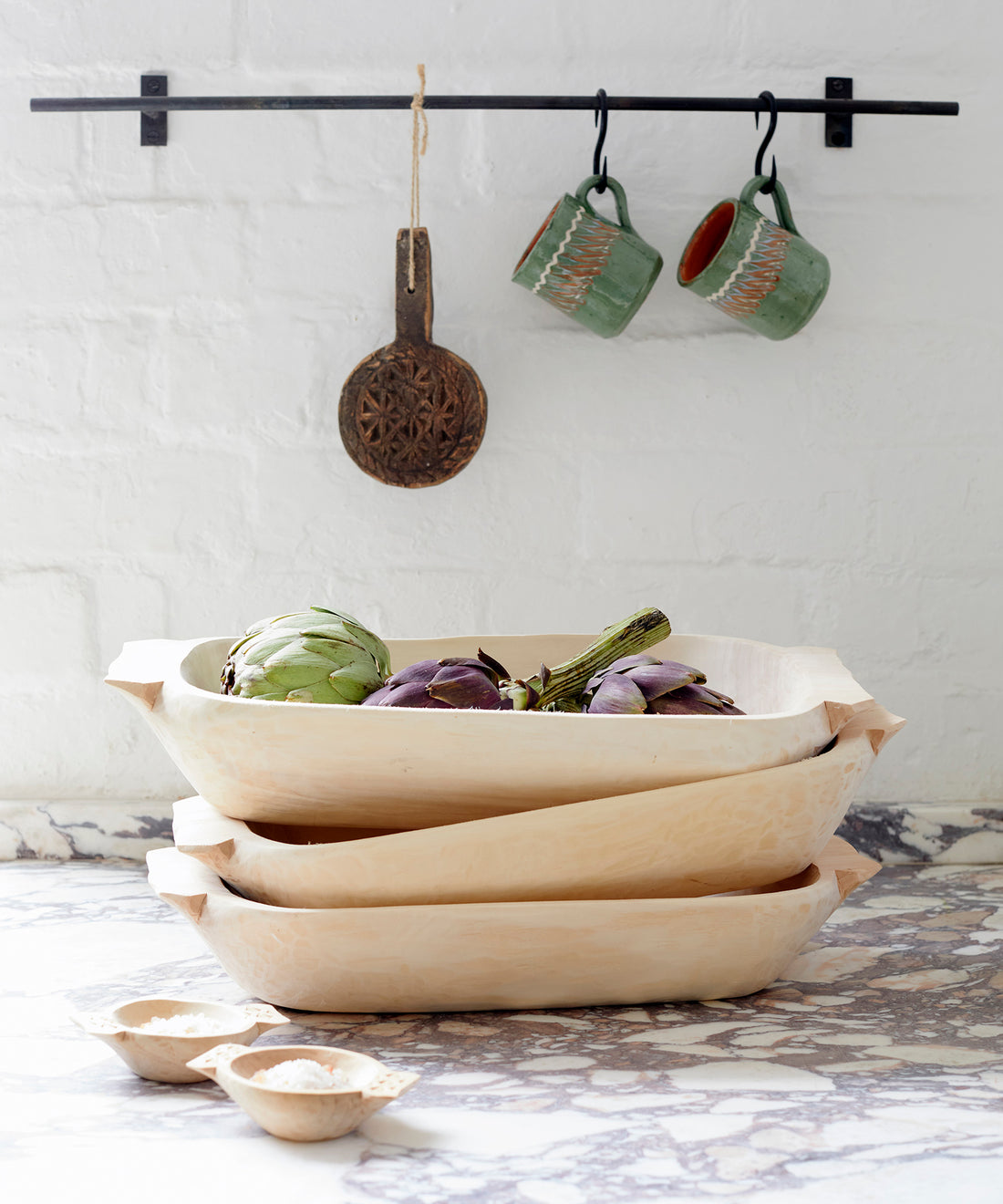The town of Băbeni in Vâlcea is renowned nationwide for its production of wooden household items, a craft passed down through generations and embraced by families who derive their livelihood with dignity from this ancestral skill. Among these skilled families is the Lepădatu family, whom I had the pleasure of meeting a few years ago when I decided to drop by unannounced while passing through the village on my way to Horezu, and to my delight, I received a warm welcome, as is customary in Romania.

As soon as I entered the courtyard, I found the entire family hard at work, diligently chopping and carving wood. The women of the family graciously took care of my baby daughter, engaging her with the children, while I had the opportunity to get a better understanding of the craft, capture some precious moments and observe the entire family's dedication to their craft.
The family's passion for the craft traces its roots to Constantin's parents. In the era of Communist Romania, where factory work was the predominant source of income, Vita and her husband sought something more. They decided to join the age-old collective, working from home and delving into the secrets learned from the village's oldest and most skilful artisans. Soon enough they became torchbearers of tradition, living off the artistry they carved into wood.

As time passed, their two sons enthusiastically followed in their parents' footsteps. Today, the entire family, including wives and children, are deeply engaged in this shared passion. Eager to inherit the skills from the older generations, they work together in perfect harmony, shaping and breathing new life into the timeless art of woodworking.
The tools used by the artisans, some of them over 60 years old, include the carving adze, axe, knife and scoop knife. The initial phase, known as roughing, entails bark removal and shaping the wood, upon which a design is sketched and then meticulously chiselled. Subsequently, the piece is left to dry, worked with the axe, and allowed to air out once again. It then undergoes a transformative process, being "sewn" with the knife. Following this, the interior is carefully hollowed out using the scoop knife. The object then undergoes another drying phase, further shaping, and concludes with meticulous sanding.

The wood is processed while still green and is left to dry naturally.
However, the journey from raw wood to a medium-sized kitchen item spans approximately two months, with the actual working time amounting to 5-6 hours. The remaining time allows the wood to "rest," strategically left to dry. While it's possible to create an object in a single day, true quality demands patience. Green wood tends to shift – it tightens, lengthens, or even cracks. Natural drying in an open space is essential to preserve the wood's inherent properties and intended shape.
The artisans exclusively utilise sustainable wood, sourced as a by-product of local conservation initiatives. The preferred wood within the Lepădatu family is the red willow, flourishing in moisture-rich valleys, and harvested during autumn and winter when its leaves have fallen. Lime is also in use, while harder essences like maple, ash, or beech are reserved for robust items such as chopping boards and eggplant knives.

Several considerations guide the artisans in their wood selection. Red willow, prized for its ease of shaping and high quality, stands out as the premier softwood. Notably, it contains natural antiseptic properties, eliminating the need for additional treatments. Its resilience makes it an ideal choice for crafting the traditional three-legged stools.
Ash, known for its water resistance, emerges as the kitchen's equivalent of an olive tree, making it a preferred material for various food preparation tools. Lime imparts a subtle sweetness to flavours and leaves its sap in objects, enhancing the overall culinary experience, even with strong ingredients like garlic. Maple wood, with its radiant fibre, is reserved for non-food-contact items due to its quick absorption of tastes. Each wood type is chosen with precision, ensuring the crafted objects align with their intended purposes and enhance the overall quality of the artisanal creations.

As we bring a curated selection of these handcrafted pieces to you, we invite you to explore the full collection and become a part of the enduring legacy crafted by the Lepădatu family. In each piece, you'll discover not just a functional item but a story of tradition, skill, and the timeless beauty of woodworking. Click Here to shop the full collection and bring a touch of Romanian craftsmanship into your home.






